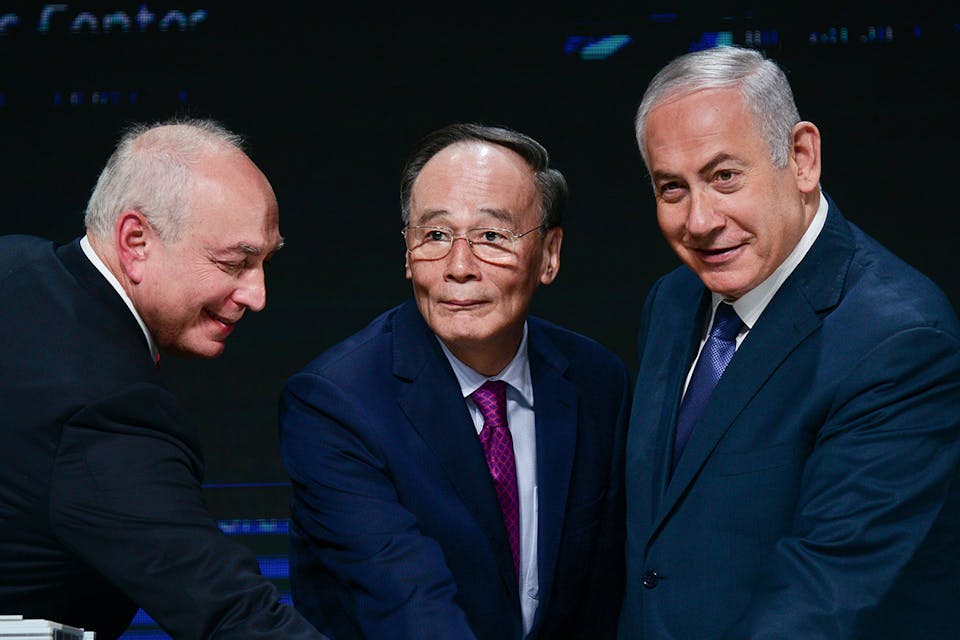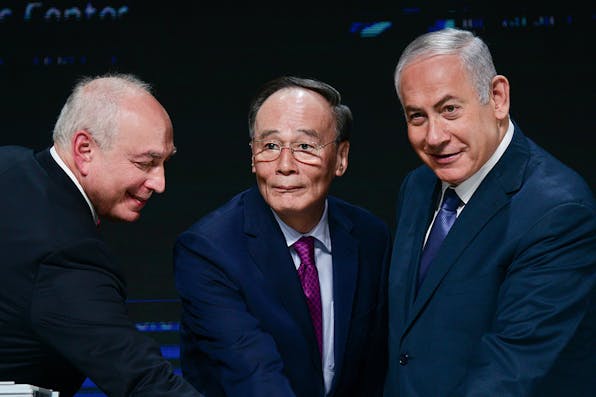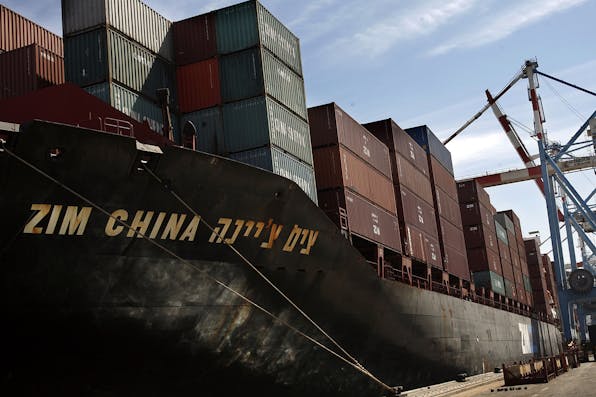
December 9, 2019
Israel Shouldn’t Draw Fixed Lines Between Itself and China
The Jewish state’s relationship with the U.S. is stronger for resting on an informal basis; replacing it with a formal alliance would do no good and only anger the world's other major power.
Arthur Herman has once again made a major contribution to an ongoing debate over the future of the U.S.-Israel-China triangle. His latest essay in Mosaic, “The Impasse Obstructing U.S.-Israel Relations, and How to Remedy It,” is sobering, thought-provoking, and profound—and, ultimately, a hopeful take on the future of U.S.-Israel relations. It also reflects his cogent argument that the U.S. must now be as alert to the challenges ahead, and specifically the challenges posed by Chinese ambitions, as Israel has always been forced to be alert in its own hostile geostrategic environment.
Indeed, Herman goes so far as to offer a grand vision of Israel becoming America’s main ally in the battle to retain an edge over China’s “weaponization” of new technologies and fields of knowledge like artificial intelligence (AI), quantum computing, and cyber warfare.
But can Israel fill the role he has assigned to it?
Responses to December ’s Essay

December 2019
Israel Shouldn’t Draw Fixed Lines Between Itself and China
By Eran Lerman
December 2019
How to Reframe the American-Israeli Alliance in a New Age of Great-Power Competition
By Assaf Orion
December 2019
Israel Is a Tech Superpower, and America Needs It on Its Side
By John Hannah, Annie Fixler
December 2019
Israel Can Teach America How to Be More Creative in the Face of Powerful Adversaries
By Vance Serchuk
December 2019
It’s Time for a “Common Market” in Defense Trade
By Arthur Herman